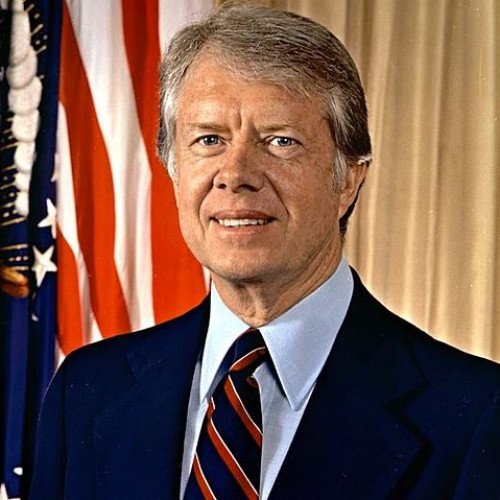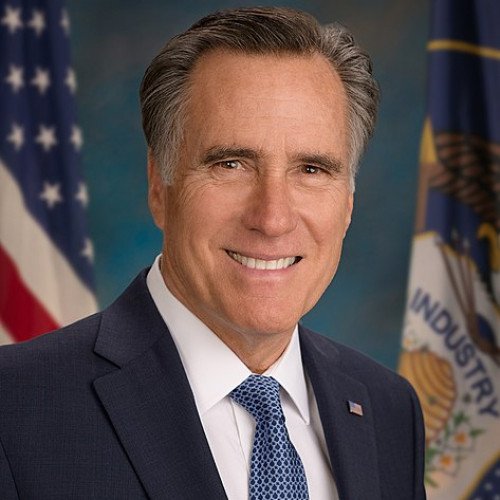Jimmy Carter VS Mitt Romney

Jimmy Carter
James Earl Carter Jr. (born October 1, 1924) is an American politician and philanthropist who served as the 39th president of the United States from 1977 to 1981. A member of the Democratic Party, he previously served as a Georgia State Senator from 1963 to 1967 and as the 76th governor of Georgia from 1971 to 1975. Since leaving the presidency, Carter has remained engaged in political and social projects as a private citizen. In 2002, he was awarded the Nobel Peace Prize for his work in co-founding the Carter Center. Raised in Plains, Georgia, Carter graduated from the United States Naval Academy in 1946 with a Bachelor of Science degree and joined the United States Navy, where he served on submarines. After the death of his father in 1953, Carter left his naval career and returned home to Georgia to take up the reins of his family's peanut-growing business. Carter inherited comparatively little due to his father's forgiveness of debts and the division of the estate among the children. Nevertheless, his ambition to expand and grow the Carters' peanut business was fulfilled. During this period, Carter was motivated to oppose the political climate of racial segregation and support the growing civil rights movement. He became an activist within the Democratic Party. From 1963 to 1967, Carter served in the Georgia State Senate, and in 1970, he was elected as Governor of Georgia, defeating former Governor Carl Sanders in the Democratic primary on an anti-segregation platform advocating affirmative action for ethnic minorities. Carter remained as governor until 1975. Despite being a dark-horse candidate who was little known outside of Georgia at the start of the campaign, Carter won the 1976 Democratic presidential nomination. In the general election, Carter ran as an outsider and narrowly defeated incumbent Republican President Gerald Ford. On his second day in office, Carter pardoned all the Vietnam War draft evaders by issuing Proclamation 4483. During Carter's term as president, two new cabinet-level departments, the Department of Energy and the Department of Education, were established. He established a national energy policy that included conservation, price control, and new technology. In foreign affairs, Carter pursued the Camp David Accords, the Panama Canal Treaties, the second round of Strategic Arms Limitation Talks (SALT II), and the return of the Panama Canal Zone to Panama. On the economic front, he confronted stagflation, a persistent combination of high inflation, high unemployment and slow growth. The end of his presidential tenure was marked by the 1979–1981 Iran hostage crisis, the 1979 energy crisis, the Three Mile Island nuclear accident, and the Soviet invasion of Afghanistan. In response to the invasion, Carter escalated the Cold War when he ended détente, imposed a grain embargo against the Soviets, enunciated the Carter Doctrine, and led a 1980 Summer Olympics boycott in Moscow. In 1980, Carter faced a challenge from Senator Ted Kennedy in the primaries, but he won re-nomination at the 1980 Democratic National Convention. Carter lost the general election to Republican nominee Ronald Reagan in an electoral landslide. He is the only president in American history to serve a full term of office and never appoint a justice to the Supreme Court. Polls of historians and political scientists usually rank Carter as a below-average president. Carter's activities since leaving the presidency have been viewed more favorably than his presidency itself. In 1982, Carter established the Carter Center to promote and expand human rights. He has traveled extensively to conduct peace negotiations, monitor elections, and advance disease prevention and eradication in developing nations. Carter is considered a key figure in the Habitat for Humanity charity. He has written over 30 books, ranging from political memoirs to poetry, while continuing to actively comment on ongoing American and global affairs such as the Israeli-Palestinian conflict.
Statistics for this Xoptio

Mitt Romney
Willard Mitt Romney (born March 12, 1947) is an American politician, businessman and former presidential candidate who has served as the junior United States senator from Utah since January 2019. He previously served as the 70th governor of Massachusetts from 2003 to 2007 and was the Republican Party's nominee for president of the United States in the 2012 election. Raised in Bloomfield Hills, Michigan, by his parents, George and Lenore Romney, he spent over two years from 1966 in France as a Mormon missionary. He married Ann Davies in 1969; they have five sons. By 1971, he had participated in the political campaigns of both parents. In 1971 Romney graduated as a Bachelor of Arts in English from Brigham Young University (BYU) and in 1975 gained the JD–MBA degree from Harvard. Romney became a management consultant and in 1977 joined Bain & Company in Boston. As Bain's chief executive officer (CEO), he later helped lead the company out of a financial crisis. In 1984, he co-founded and led the spin-off company Bain Capital, a private equity investment firm that became one of the largest of its kind in the nation. Active in The Church of Jesus Christ of Latter-day Saints (LDS Church) throughout his adult life, Romney served as bishop of his ward and later as a stake president, for an area covering Boston and many of its suburbs. After stepping down from Bain Capital and his local leadership role in the LDS Church, Romney ran as the Republican candidate in the 1994 United States Senate election in Massachusetts. After losing to longtime incumbent Ted Kennedy, he resumed his position at Bain Capital. Years later, a successful stint as president and CEO of the then-struggling Salt Lake Organizing Committee for the 2002 Winter Olympics led to a re-launch of his political career. Elected Governor of Massachusetts in 2002, Romney helped develop and later signed a health care reform law (commonly referred to as "Romneycare") that provided near-universal health insurance access through state-level subsidies and individual mandates to purchase insurance. He also presided over the elimination of a projected $1.2–1.5 billion deficit through a combination of spending cuts, increased fees and closing corporate tax loopholes. He did not seek re-election in 2006, instead focusing on his campaign for the Republican nomination in the 2008 U.S. presidential election. Though he won several primaries and caucuses, Romney ultimately lost the nomination to Senator John McCain. Romney's considerable net worth, estimated in 2012 at $190–250 million, helped finance his political campaigns prior to 2012. Romney again ran for and won the Republican presidential nomination in 2012, becoming the first Mormon to be a presidential nominee of a major party. He was defeated by incumbent Democratic President Barack Obama in the 2012 presidential election, losing the Electoral College by a margin of 206–332 and the popular vote by a margin of 47–51%. After re-establishing residency in Utah, Romney announced his campaign for the U.S. Senate seat held by the retiring Orrin Hatch in the 2018 election; he defeated state representative Mike Kennedy in the Republican primary and Democrat Jenny Wilson in the general election. In doing so, he became only the third individual ever to be elected governor of one state and U.S. senator for another state (the others being Sam Houston and William Bibb). Romney was sworn in on January 3, 2019. In the impeachment trial of Donald Trump, he voted to convict the president of abuse of power (over Trump's attempts to get Ukrainian President Volodymyr Zelensky to announce an investigation into his political rival Joe Biden), becoming the first and only senator in U.S. history to vote to convict a president of his own party.